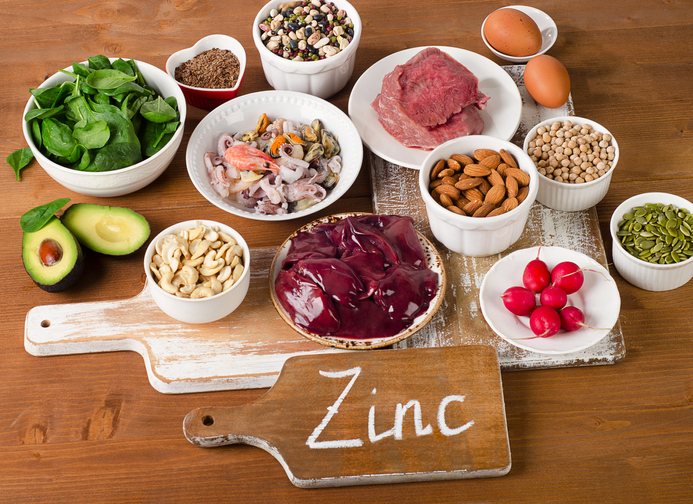What You Need To Know About Zinc And Your Health

Many people associate zinc with zinc lozenges which are generally used to reduce the impact of the flu and cold. But how much do you really know about this essential mineral?
As you may have guessed, zinc is important for a healthy immune system. For example, zinc can help you get sick less often or get well quicker. But zinc has even shown promise in pain treatment. Pharmacologists who wrote an article on zinc and pain are calling for zinc to be a supplement that goes with every prescription of percocet, Vicodin and Norco? Why? There are some animal studies which suggest that zinc may help prevent opioid withdrawal and addiction. Zinc has also been shown to help menstrual pain in teens.
What usually causes zinc deficiency?
Zinc deficiency can be caused by the following:
- Not getting enough zinc in your diet. For example vegetarians may be at risk of zinc deficiency because of low meat consumption and because of the phytates in their diet. Phytates are antioxidant compounds found in whole grains, legumes, nuts and seeds, which bind to zinc and make it less absorbable.
- Absorption troubles.
- Certain diseases. People with sickle cell disease and alcoholism are likely to have low zinc levels.
- Aging. Approximately 1 in 3 adults over 60 may be zinc deficient.
What are some of the signs of zinc deficiency?
- Loss of smell and taste
- Poor immune system health
- Testicular atrophy
- Impotence
- Hair loss
Is it possible to have too much zinc?
You need zinc, but not too much. Excess zinc can cause copper deficiency and anemia as well as damage to the pancreas and decrease levels of high-density lipoprotein (HDL) cholesterol (the good kind)
What is the daily recommended intake of zinc?
The recommended daily intake is 11mg for males, 9 mg for females, 11 mg for pregnant women, 12 mg for lactating women and 2-5 mg for early childhood.
What are some dietary sources of zinc?
- Oysters (highest source of zinc)
- Red meat
- Poultry
- Whole grains
- Beans
- Nuts
A simple zinc test
Swish a mouthful of liquid zinc supplement to get an idea of how deficient you are. If you don’t taste anything, you are deficient. If you taste it and it is unpleasant, then you are all set.
(The information including scientific references used to support this blog were taken from Minerals - The Forgotten Nutrient: Your Secret Weapon for Getting and Staying Healthy. For more information about zinc, read here ).







